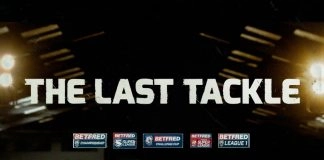After being commissioned by GambleAware to take part in the project the Gambling Education Hub, which aims for all young people around Scotland to have access to gambling education and resources.
Warren Huges, Project Manager at Fast Forward, a national voluntary organisation that exists to enable young people to make informed choices about their health and well-being has been interviewed by Kirsty Macleod, Mental Health & Wellbeing Co-ordinator at City of Glasgow College (COGC) Support & Wellbeing Team on the ways in which gambling can affect students.
What is it?
The session discusses the ways in which gambling can affect students, how gambling isn’t gender specific and has a variety of ages who gamble, it talks about new forms gambling may appear and the education needed for this.
It also talks about loot boxes, esports, how gambling can affect one’s mental health, how to recognise when gaming/gambling is becoming problematic, it talks about where people can find help if they find themselves falling into problematic behaviour.
Who is it?
Warren Huges, Project Manager, Fast Forward
Kirsty Macleod, Mental Health & Wellbeing Co-ordinator, COGC Support & Wellbeing Team
What is being said?
Huges: “I think it’s really important to emphasise that gaming isn’t a bad thing. Gaming is actually a great thing! I’m a gamer myself and gaming can be used for education, it can be used for physiotherapy, it can be used even as things like a stress release but when we’re looking at things like gambling like features that’s when there are risks involved.
“Some of the issues with these as games have advanced they have had to look at new ways to monetise them, the gaming industry looks at new ways of making money and they’ve started microtransactions which are basically quick transactions within games, a lot of people might have seen apps on their phone where they’ve made small transactions. These microtransactions can be 79p or they can be right up to hundreds of pounds.
“Where it becomes perhaps a bit more harmful is when you don’t know what you’re going to get, a microtransaction where you’re playing for something and it could be anything within that game. They are called loot boxes and they are becoming more and more prevalent within video games and they are very similar to gambling like mechanics.
“That’s not the only issue that is similar to gambling but it is one that is receiving a lot of news at the moment in terms of its exposure to young and vulnerable groups.”
Why should I watch it?
To see how GambleAware’ project the Gambling Education Hub is being taught to students.
Where can I see more?
Source: COGC Support & Wellbeing Team YouTube Channel




